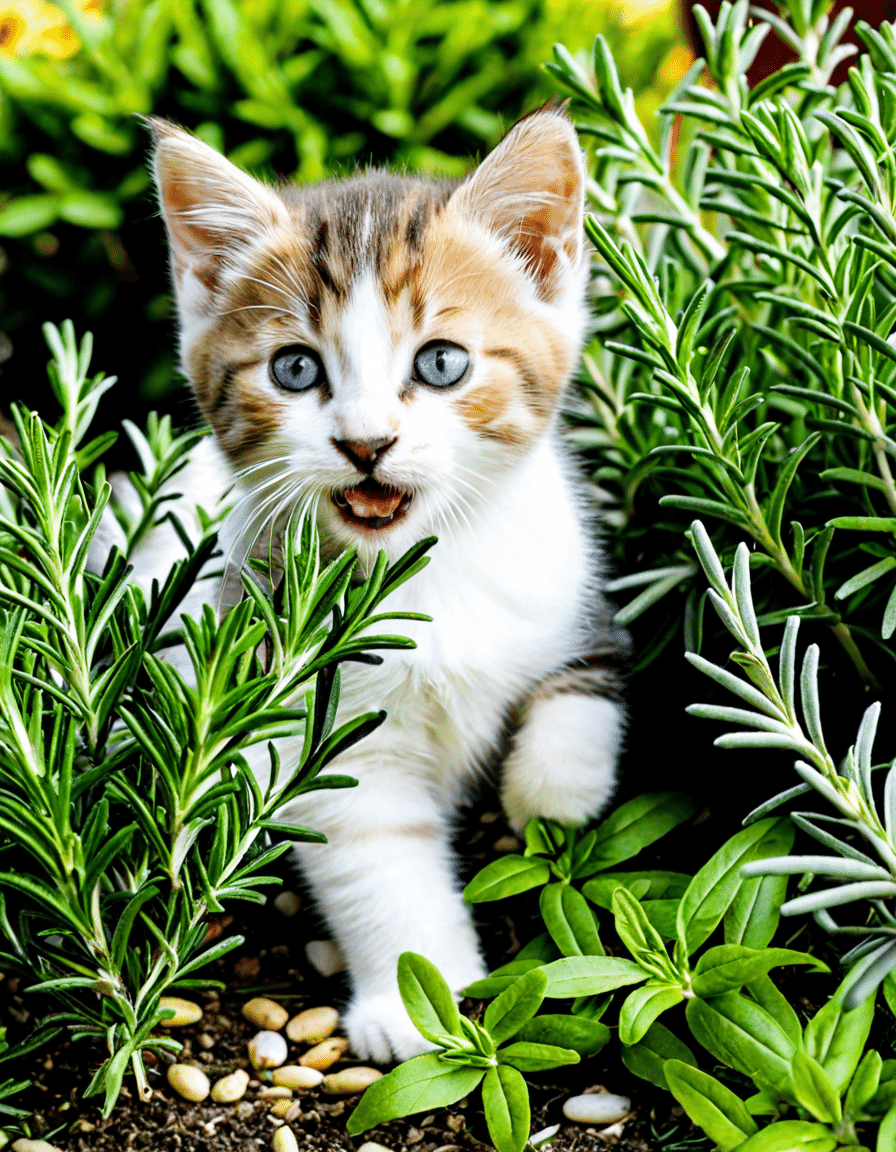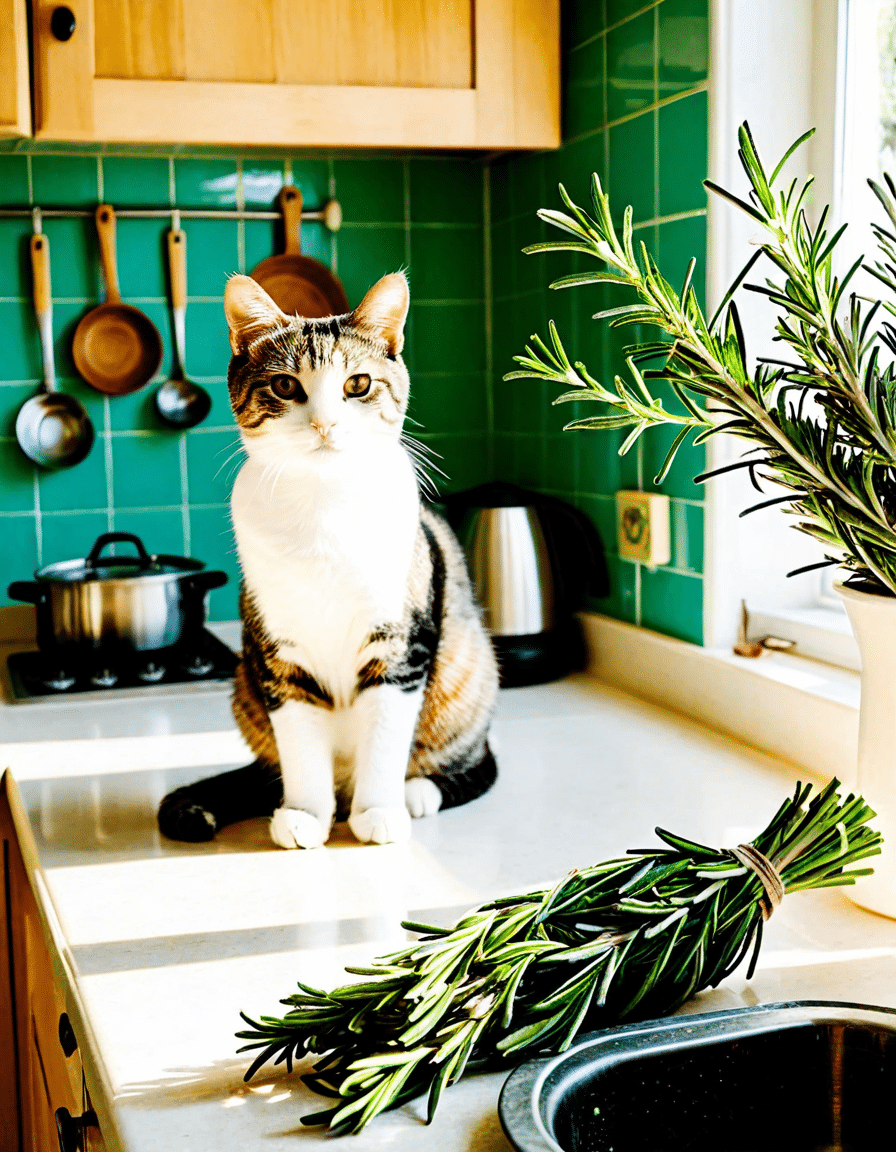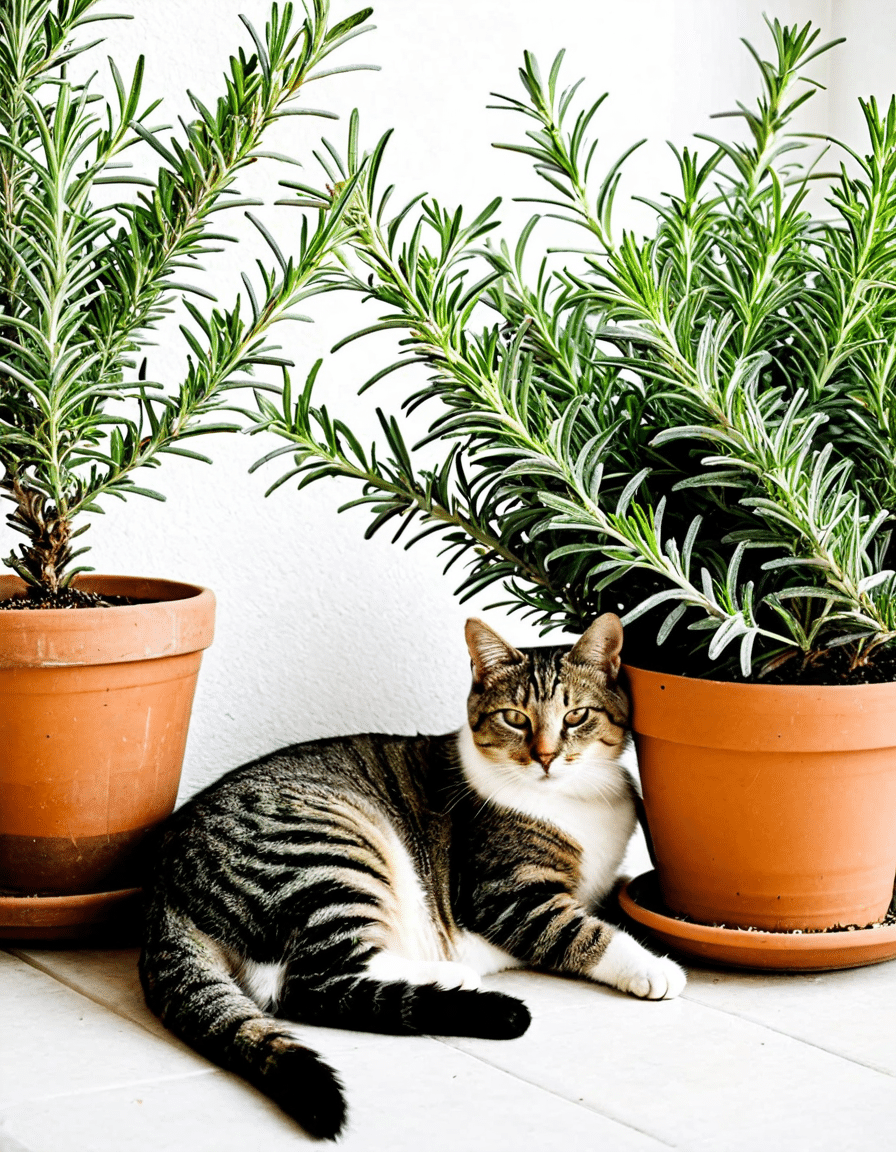As pet owners, we often want to share our favorite meals and herbs with our furry friends. You might be asking yourself, is rosemary toxic to cats? If you’re keen on incorporating this flavorful herb into your cat’s world, it’s good to know that rosemary (Rosmarinus officinalis) is generally deemed safe. Considered a perennial herb from the Mediterranean, rosemary finds its way into various dishes and remedies—and the great news is that the American Society for the Prevention of Cruelty to Animals (ASPCA) confirms that rosemary is non-toxic to cats! But, as with all things, moderation is key, and there are a few factors to keep in mind when introducing this herb into your kitty’s life.
The Basics: Is Rosemary Toxic to Cats?
You might be relieved to learn that rosemary isn’t toxic to our feline companions. However, it’s essential to clarify that just because something is non-toxic, doesn’t mean it’s always advisable. Some cats may have unique responses to rosemary, and that’s where the concern arises. For most cats, small quantities will pose no issue, but it’s wise to keep an eye out for how your pet reacts when they have a nibble.
It’s also important to remember that while your cat can enjoy rosemary in moderation, their individual sensitivity could lead to unexpected reactions. Always listen to your pet and monitor them closely! They might have different likes and dislikes when it comes to tastes and scents, and rosemary falls into a category some cats might not fancy.

What Cats Might Experience with Rosemary: A Closer Look
Though rosemary is non-toxic, it’s like a double-edged sword—some cats might take to this herb, while others could struggle with it. Here’s a closer look at what to expect:
Top 5 Ways to Safely Include Rosemary in Your Cat’s Diet
Ready to try rosemary with your cat? Check out these safe and enjoyable ways to incorporate it into their routine:

Potential Benefits of Rosemary for Cats
Introducing rosemary in moderation can also yield some helpful benefits for your cat. Here are a few noteworthy ones:
Expert Opinions: What Veterinarians Say About Rosemary
Veterinarians emphasize the importance of moderation and observation regarding rosemary consumption in cats. Dr. Sarah Dodd, a veterinary nutritionist, states, “While rosemary isn’t harmful, it should only be a small part of your cat’s diet.” Dr. Melissa Bain, a veterinary behaviorist, agrees with this perspective, highlighting that “monitoring behavior changes is essential to gauge your cat’s individual response to rosemary or any herb.”
In the end, knowledge is power! Engaging in thoughtful discussions with your veterinarian can help tailor your cat’s diet to their unique needs.
Embracing Herbs in Your Cat’s Life
Understanding that rosemary is not toxic to cats opens up a world of possibilities for enhancing their meals and overall health. However, always remember to introduce any new herb cautiously and be alert for any signs of discomfort. By consulting with veterinarians and considering your pet’s unique needs, you can safely experiment with rosemary and similar herbs to promote variety in your kitty’s diet. This lets you nurture their well-being while keeping feeding fun and exciting.
So, let your adventurous side shine when it comes to culinary choices for your feline! With a sprinkle of rosemary here and there, you can make mealtime not just nutritious but enjoyable too. After all, keeping our furry pals healthy and happy is what we all strive for. How great is that?
Additional Reading
If you’re keen on exploring more about keeping your pet healthy, check out these insightful articles: What Causes ferret damaged eye Popped out And ear, Can You gain a third Of a pound daily ?, and discover the life expectancy Of St Bernard dog.
Is Rosemary Toxic to Cats?
When pondering the question of “is rosemary toxic to cats,” it helps to know a bit about this popular herb. Rosemary belongs to the mint family, and it’s known for its delightful aroma and culinary uses. While some herbs can pack a punch when it comes to toxicity for pets, rosemary is generally safe for cats in small amounts. However, just as with anything else, moderation is key—much like a cat’s playful leap that sometimes leads to a questionable landing, you don’t want to let them indulge too much. In fact, did you know that rosemary has been praised for its potential health benefits in humans, too? This means it’s not just for a sprinkle on your lamb roast, but also tied into the lore of health and wellness, much like how Jethro Bodine was known for more than just his times on the screen!
Interestingly, while rosemary is safe, there are other herbs that can be downright toxic to your feline friend. A classic example is the infamous lily, which can cause severe kidney damage. Think of it as the pet care world’s own artistic gymnastics bronze medal protest—serious consequences hidden under a pretty facade. It’s always good to err on the side of caution and stick to safe herbs when enhancing your cat’s diet. Speaking of safe choices, wouldn’t it be amusing if cats were as picky about herbs as we are about the memes we use? Just think of the Smirking meme that captures a cat’s attitude perfectly!
As much as we love to explore what’s good, it’s also essential to keep an eye on potential side effects. Cats can sometimes be sensitive little beings, and even a safe herb like rosemary could cause stomach upset if they eat too much. In comparison, certain breeds like the Catahoula leopard mixed With Pitbull might have different tolerances, emphasizing how individual animals can respond variedly to the same foods. If you’re ever in doubt, consulting a vet is like having your very own Trevante Rhodes; it’s good to have someone who’s got your back!
In short, is rosemary toxic to cats? Generally, no—but it’s wise to be cautious. Just as you wouldn’t turn a blind eye to keeping an eye on Jumbo Joshs antics, you should also be aware of what your kitty munches on. A little rosemary here or there can enhance your cat’s dining experience without the worry, much like knowing which herbs can safely season your dinner. Remember, the best part of caring for your furry friend is nurturing that bond—even in the little things like what they nibble!



